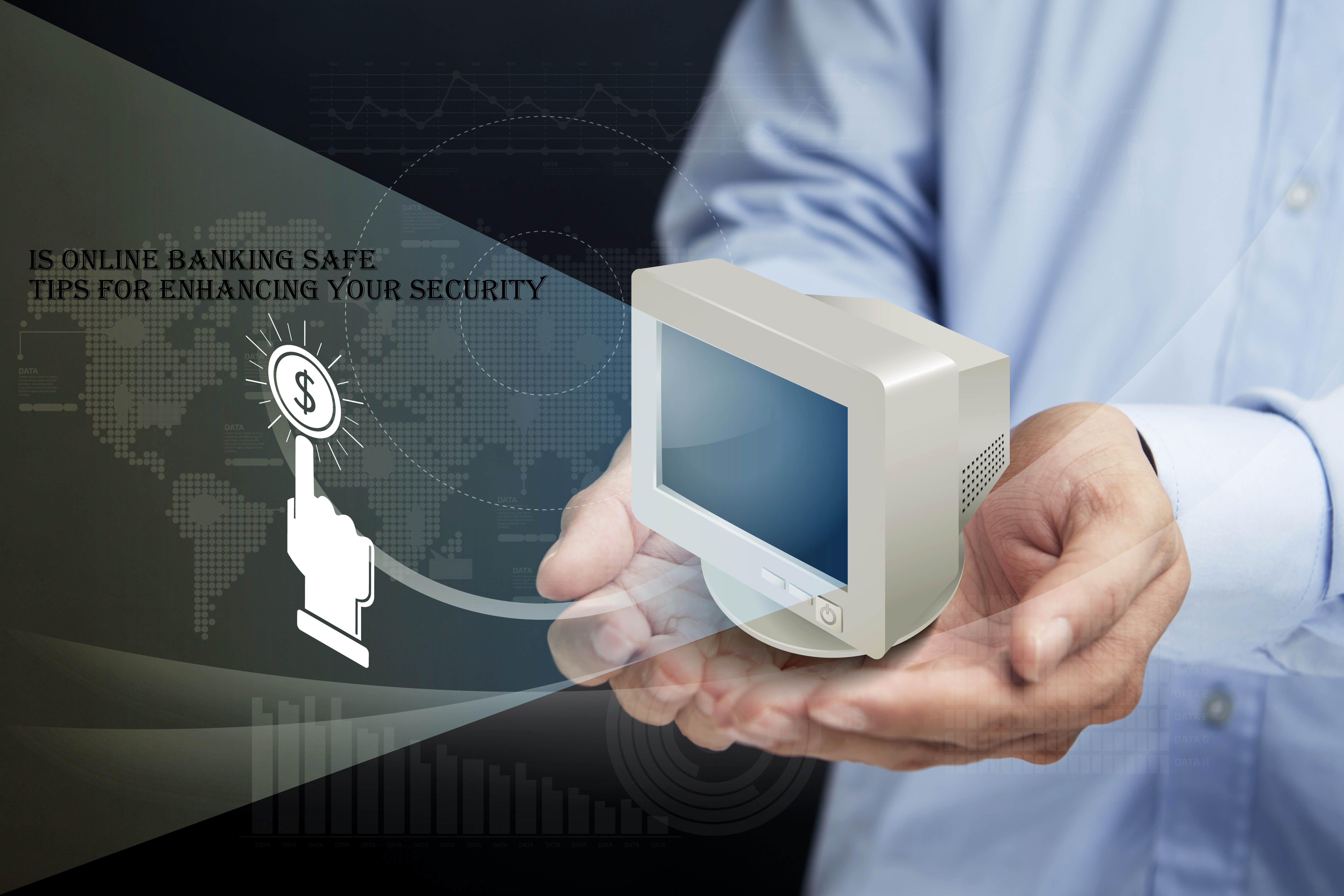Is Online Banking Safe? Tips for Enhancing Your Security: Online banking can be safe if you take precautions. Use strong passwords, enable two-factor authentication, and avoid public Wi-Fi. Regularly update your software and apps, beware of phishing scams, and monitor your account for suspicious activity.
Is Online Banking Safe? Tips for Enhancing Your Security

Is Online Banking Safe? Tips for Enhancing Your Security
With the increasing popularity of online banking, concerns about security and privacy have also risen. However, online banking can be safe if you follow essential security practices and stay vigilant against potential threats.
This article explores the safety of online banking and provides valuable tips for enhancing your security while managing your finances online.
Is Online Banking Safe?
Online banking is generally considered safe when proper security measures are in place. Reputable banks invest heavily in advanced encryption technologies, multi-factor authentication, and other security protocols to protect customer data and financial transactions. Additionally, regulatory bodies impose strict guidelines and standards to ensure the safety and privacy of online banking services.
However, it’s essential to understand that no system is entirely foolproof, and cyber threats are continually evolving. Cybercriminals use various tactics, such as phishing scams, malware, and social engineering, to target unsuspecting users. Therefore, staying informed about potential risks and implementing security best practices is crucial for a safe online banking experience.
Tips for Enhancing Your Online Banking Security:
- Create Strong Passwords: Use strong, unique passwords for your online banking accounts. Avoid common passwords and include a combination of uppercase and lowercase letters, numbers, and special characters. Never use the same password for multiple accounts.
- Enable Two-Factor Authentication (2FA): Two-factor authentication adds an extra layer of security to your online banking account. It requires a second form of verification, such as a one-time password (OTP) sent to your mobile device, in addition to your password. Always enable 2FA when available.
- Beware of Phishing Scams: Be cautious of emails, text messages, or phone calls asking for personal information or directing you to click on suspicious links. Legitimate banks will never request sensitive information via unsolicited communications.
- Use Secure Networks: Avoid conducting online banking transactions on public Wi-Fi networks, as they may not be secure. Use your home Wi-Fi or a cellular data network to ensure a private and secure connection.
- Keep Software Updated: Regularly update your devices, operating systems, antivirus software, and online banking apps to ensure you have the latest security patches and features.
- Monitor Account Activity: Regularly review your account statements and transaction history for any unauthorized activity. Many banks offer account
activity notifications via email or mobile alerts.
- Log Out Properly: Always log out of your online banking account properly when you have finished your session. Simply closing the browser may not be enough to ensure you are logged out securely.
- Protect Your Devices: Use a strong passcode or biometric authentication to lock your devices when not in use. Avoid leaving your devices unattended in public places.
- Verify Website Security: Ensure that the bank’s website is secure before entering any login credentials. Look for “https://” in the URL and a padlock icon in the address bar.
- Use Mobile Banking Apps: Mobile banking apps provided by reputable banks often offer enhanced security features. Download apps from official app stores and avoid third-party sources.
- Educate Yourself: Stay informed about the latest cyber threats and security best practices. Be cautious of new scams and share this knowledge with family members to keep them safe as well.
Conclusion:
Online banking can be safe if you take appropriate security measures and remain vigilant against potential threats. Banks invest in robust security technologies, and regulatory standards ensure the protection of customer data. However, individual responsibility is crucial in safeguarding your online banking experience. By creating strong passwords, enabling two-factor authentication, avoiding phishing scams, and using secure networks, you can enhance your online banking security. Stay informed about the latest security trends, and follow these tips to enjoy a safe and convenient online banking journey.
